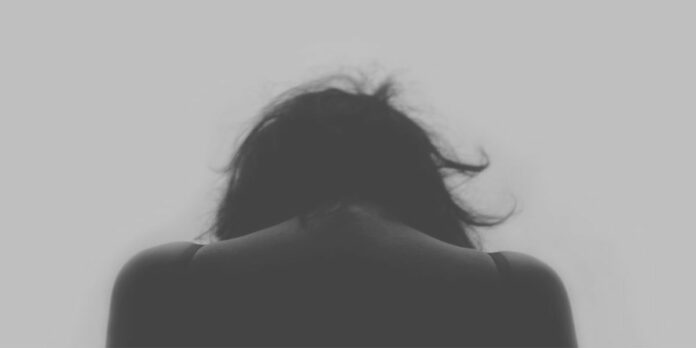Brandi Broome is an author, cave explorer and surveyor, pre-med student, mother of three
fabulous nerdlings, and an advocate for survivors of domestic violence.
This article features the aftermath that survivors face immediately following an attack in the hope that friends and families can better understand how to help survivors and that survivors glean tips that accelerate their healing processes.
Brandi endured intimate partner violence—holding her front door shut as it splintered around her, gasping for breath as she was strangled, and ultimately being beaten.
I am a domestic violence survivor, a strong force to be reckoned with now. But it wasn’t always this way.
I cried in the hospital as they ushered me back into the fluorescent lights and judging eyes.
I panicked in the donut of the CT scan as I was left alone, alone, alone. Recalcitrant, I
didn’t want stitches on my face. I just wanted to go home and never talk to anyone again. If you don’t talk to any other humans, none of them can hurt you or disappoint you.
I was going to talk to the trees, the plants, and my kids. No exceptions.
I didn’t say a word as the most unglamorous photo shoot a girl can have unfolded in the ER. Pixels of my purple choker, a striptease of my mutilated nose, peeling the bandages back, bit by bit.
I hadn’t realized that I would be so different that people would ask me what happened. It didn’t matter because of the No People Plan, remember? Before my attack, I had a different job, different hobbies, a different life. My two ER companions kept asking me if I wanted to call anyone.
Who would I even call to spread the burden of my trauma around?
No one had liked the man who attacked me; anyone who saw him interact with me knew that he couldn’t possibly love me. And anyone I let close enough to see my truth called him the Devil.
So, I didn’t want to hear “I-told-you-sos” piling up like messages for the dead.
I was attacked on a Friday night, and I realized by Saturday that I wasn’t going into work on Monday. I didn’t want to call anyone.
I could go live under a bridge, disappear into the trees. I had the gear to survive nature’s worst and the savings to stay put for a while.
Then, I gathered my nerve and looked up, defying the questioning eyes as they took in my bandage and bruises. I layered disdain and fury into my eyebrows to complete the ensemble and learned to face people for long enough to get my prescriptions and my blessed coffee. (Coffee would be an issue with my exodus into the wilderness plan.)
After I didn’t die from pitying looks and “bless-your-hearts,” I squared my shoulders and called my boss, explaining that I wouldn’t be in for a while.
My son’s birthday was shortly after my attack. I’d have given him the moon if he’d asked after all we’d been through. But he only wanted to go to the aquarium. So, I squared my shoulders, put on the mask of haughty pride and watched my boy enjoy the playful creatures and devour ice cream. I survived an onslaught of questioning eyes.
I got home and did what people do — I posted the happy parts of my life, my sweet boy enjoying his day out, grinning at the pint of ice cream he’d gotten away with ordering. But it was a lie. No one on the other side could see that the woman holding the camera had a bandaged nose, a bruised neck, and was in a lot of pain. I was furious.
How dare all of these people I didn’t even want to interact with act like the world is a good place!
How dare they act like everything was fine!
On the heels of that ungrateful fury, I realized that I had not given anyone a chance to be kind, sympathetic, or supportive. I only assumed my tragedy would be met with judgment, and I was being eaten alive by the certainty that the entire world would treat me like I deserved that attack somehow.
I decided that instead of living a closed life of pessimistic certainty that all 400 or so of my friends would condemn me, that I would give them all a chance. And I didn’t take down
the birthday pictures, but I followed up with a lengthy post telling the whole world what
happened between the day of my attack and those birthday pictures.
I waited for the foolish comments that so often permeate social media. But they didn’t come.
Instead, my village gathered around me and found ways to help me rebuild my life. They helped me pack, they brought me food, and they messaged therapists’ names and book
recommendations.
So many women told me they’d lived through the same things and never told anyone, but they wanted me to know I was not alone.
They didn’t leave me to ruminate on my tragedy, to fall into despair and depression.
Choosing to peel back the façade and level with everyone I knew is what saved my life. If you are recovering from a trauma, I recommend telling everyone you know. Not everyone will care or be kind, but so many people actually will care that your faith in humanity can begin to mend and you can begin to heal.
And for those who want to help domestic violence survivors, I hope I have taken away your
stereotypes.
You can be white, beautiful, perfect on the surface, intelligent, adventurous, and even accomplished, and still find yourself scared to death that someone you had a relationship
with will kill you.
Domestic violence doesn’t discriminate.
Thank you for reading my experience and learning to empathize with survivors.
There are more of us than you know: “1 in 4 women and 1 in 9 men experience severe intimate partner physical violence, intimate partner contact sexual violence, and/or intimate partner stalking with impacts such as injury, fearfulness, post-traumatic stress disorder, use of victim services, contraction of sexually transmitted diseases.”
Don’t miss out! Subscribe to our email newsletter to have all our smart stories delivered to your inbox.



